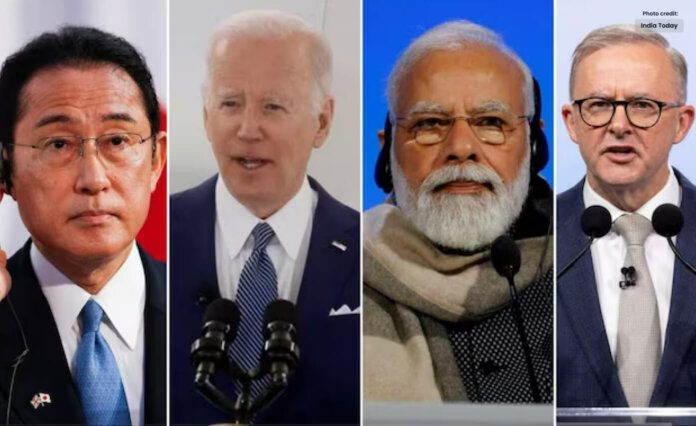Quad leaders take a subtle jab at Beijing during the Hiroshima summit.
Although the communist superpower was clearly the subject of language in a joint statement asking for “peace and stability in the Indo-Pacific maritime domain,” the US president, Joe Biden, and three partners of the Quad group avoided mentioning China by name.
The statement used diplomatic language to say, “We strongly oppose destabilizing or unilateral actions that seek to change the status quo by force or coercion.” It looked to be referring to China’s economic strategies to acquire leverage over weaker countries as well as its military ambitions in the Pacific.
The statement continued, that the expressed serious concern at the militarization of disputed features, the dangerous use of coastguard and maritime militia vessels, and efforts to disrupt other countries’ offshore resource exploitation actions.
The leaders of the Quad met while already convened in Hiroshima for a summit of the Group of 7.
A deal to accelerate climate and renewable energy action was struck by the Australian prime minister, Anthony Albanese, and the US president, Joe Biden, outside of the G7 summit in Japan.
A postponed Quad meeting is on the agenda as Albanese conducts a series of crucial discussions at the G7 summit with some of the most influential leaders in the world.
On the fringes of the summit in Hiroshima, Albanese and Biden had a private discussion. On Saturday, Albanese met with UN Secretary General António Guterres.
After the US president had to cancel his attendance at a scheduled Quad summit next week that supposed to include the presidents of Japan and India, Biden apologized to Albanese for not meeting him in Sydney.




